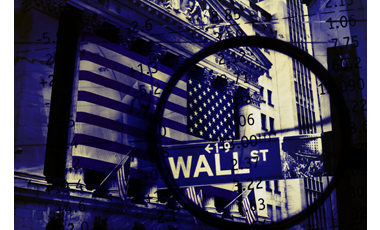Dodd-Frank: To Repeal or Not to Repeal Title VII?
December 23rd, 2016

This article was originally published in the Tabb Forum.
Ever since the Dodd-Frank Wall Street Reform and Consumer Protection Act was signed into law, there have been calls from various quarters for its repeal, modification, or replacement. This year, during the U.S. Presidential pre-election period, the decibel level of the Dodd-Frank repeal noise was raised significantly, and it remains a front-and-center issue post-election, with multiple factions espousing various changes to the legislation.
Dodd-Frank is comprised of 16 separate Titles, and six years after its enactment, a very significant number of its requirements remain unaddressed. Of those 16 Titles, I would like to address Title VII, Swaps and Derivatives Regulation (Wall Street Transparency and Accountability), arguably the Title that has had the most profound impact on both sell-side and buy-side compliance risk management.
First, while the relative value of swap-related transactions effected on swap execution facilities are undoubtedly not of the scale envisaged by the legislators of Dodd-Frank, it nonetheless has become a very formidable factor accounting for, by way of example, two-thirds of the interest rate swap market and the majority of the credit default swap market. Second, great strides have been made by both the regulators, and the regulated, in adapting to their respective responsibilities in the areas of market transparency (e.g., SEFs and trade reporting) and accountability (e.g., in the areas of conflicts of interest, market manipulation, and investor protection).
While the controlling majority of Congress appears to be steadfast in its resolve to dismantle Dodd-Frank, it would be my considered opinion that while certain provisions contained within Dodd-Frank might indeed be vulnerable – such as the Financial Stability Oversight Council’s current authority to designate large nonbanks as being systemically important, or the management structure of the Consumer Financial Protection Bureau – Title VII itself will and should remain substantially sacrosanct.
My view is influenced by a number of factors. First, there may be resistance toward unravelling already implemented structural changes, in particular, the expanded role of swap execution facilities for effecting swap trades, particularly by the buy side, which seems to have embraced SEFs by many accounts. In addition, the sell side has made a very significant capital spend on changes to its processes, infrastructure, and compliance risk management systems to support and comply with the requirements of Title VII, and it may indeed be foolhardy to fantasize that they will have any predisposition toward unwinding the massive changes that have been undertaken by the enterprise to support and comply with Title VII.
Since the focus of Title VII is transparency (aka: sunshine) and accountability (aka: anti-fraud, anti-manipulation, etc.), I would have difficulty concluding that swap market participants would be anti-transparency or “anti” the principles of anti-manipulation or anti-fraud. There currently exists an escalated degree of sensitivity or fear at the corporate governance level (i.e., Boards of Directors, C-Suite, etc.) regarding their liability, due to governance failures, and corporate governance stakeholders generally are much more inclined these days to have more rather than less in the way of risk controls.
Despite these scenarios, however, there is one significant Title VII area that may be put under the knife, and that is the Volcker Rule. That said, the financial institutions that are subject to the Volcker Rule have not, to my knowledge, been anti-Volcker in a public way and, perhaps, may even be Volcker-friendly from the perspective of the rule’s contribution toward safety and soundness and protecting their institutions with respect to systemic risk.
Of course, one needs to balance that consideration against another risk that has not reared itself since the enactment of Volcker, and that is the risk of no liquidity in adverse circumstances. While there has been criticism about the effect that Volcker has had in crimping liquidity, especially in the Fixed Income markets, the general absence of significant volatility in these markets – at least up until the time of the election, due to various factors, including the policies of our global central bankers – has not added weight to this argument. And, while the new role of the buy side in providing liquidity may have tempered the effect of the banks de-risking their activities and not engaging in proprietary trading, the real test will come with the next cataclysmic market/global macro event when bids go into hiding.
ne last note: Contained within Title IX of Dodd-Frank is a section that gives the SEC the authority to establish a fiduciary standard of care for broker-dealers in providing personalized investment advice to retail customers. The SEC has been stuck in the mud with respect to proposing/adopting fiduciary regulations for brokers and it is not certain at this time when or if the SEC will adopt a dual suitability and fiduciary responsibility for brokers.
Since there is a high probability that the leadership of the SEC will change in the near future, it is too soon to conjecture what impact that might have on the fiduciary standard. While the fiduciary standard for retirement-based accounts adopted by the U.S. Department of Labor is scheduled to become effective in April 2017, that is not a Dodd-Frank-related initiative; though it’s entirely possible that the DOL fiduciary requirement may become subject to its own re-examination with the anticipated changes in the DOL and other cabinet level departments.
As we kick off the New Year, the only thing certain in this climate is change. But where that change takes us in the world of Dodd-Frank, particularly with an incoming administration at the helm that has suggested that certain pieces of the legislation be altered or eliminated, could well be anyone’s guess.




